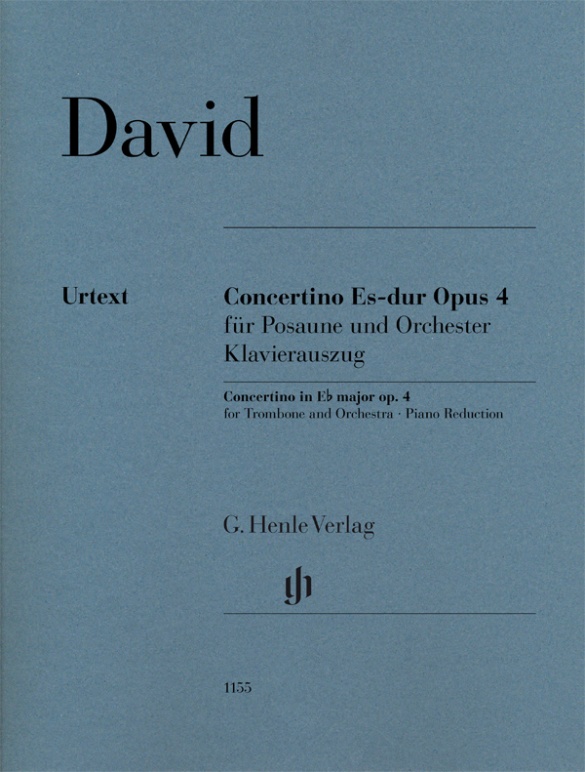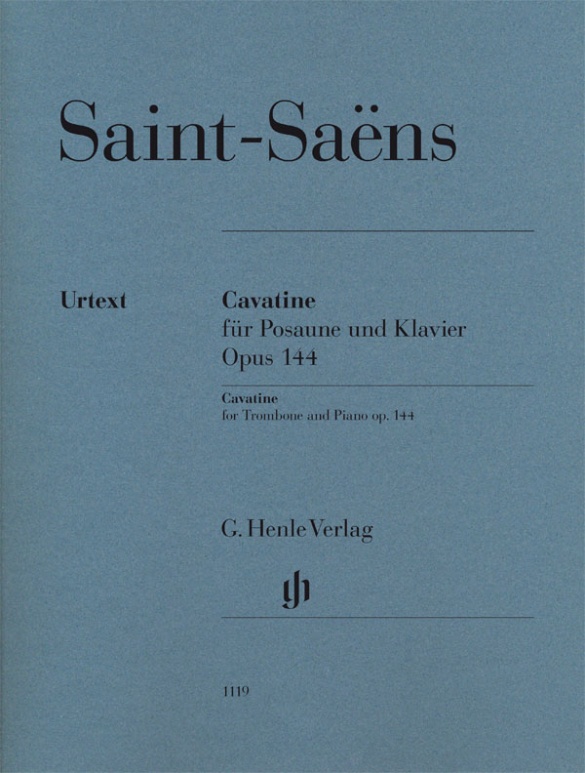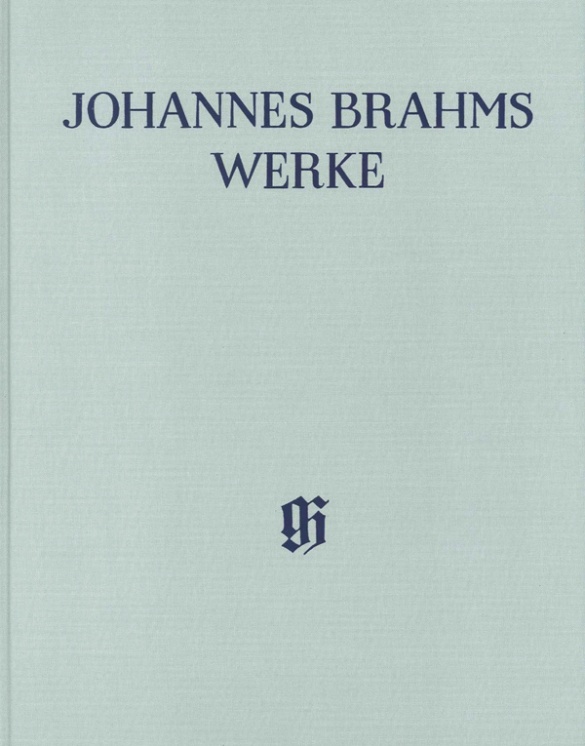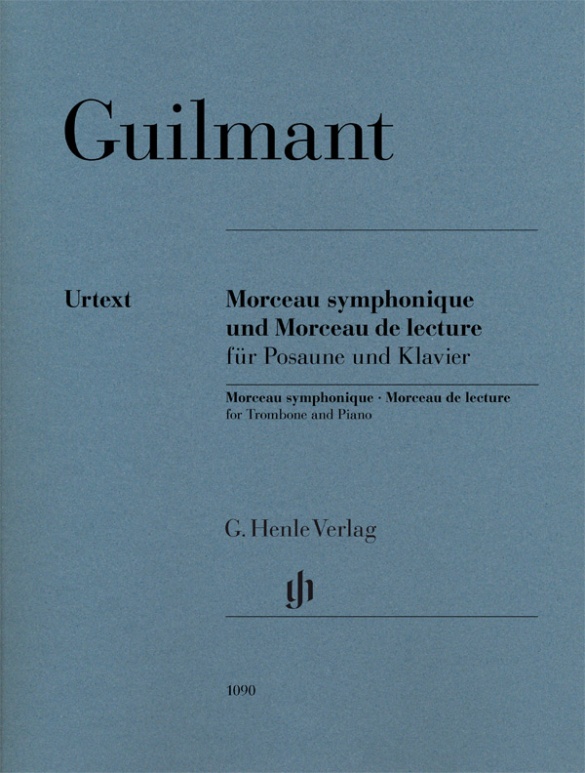

Alexandre Guilmant
Morceau symphonique op. 88 and Morceau de lecture for Trombone and Piano
Alexandre Guilmant was one of the greatest representatives of the French Romantic organ school, and composed almost exclusively for his instrument. A rare exception is this “Morceau symphonique”, written in 1902 for the Paris Conservatoire’s annual trombone class competition. The charming piece soon found its way into the repertoire – as did Saint-Saëns’s “Cavatine” (HN 1119) – and is today among the essential standard works of trombone literature. The “Morceau symphonique” is here offered in its first-ever Urtext edition, based on the autograph and the first edition. We also offer here a particularly special treat – the sight-reading piece that Guilmant wrote for the same competition.
Content/Details
About the Composer
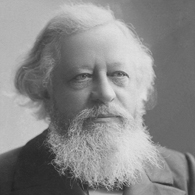
Alexandre Guilmant
Composer, organist, and publisher, whose precise technique, improvisatory skill, and outstanding abilities in organ registration made him a celebrated concert organist and sought-after teacher throughout Europe. He left behind very extensive works and collections for the organ. Aside from those he wrote orchestral pieces, chamber music, and treatises on and about organ music.
| 1837 | Born in Boulogne-sur-mer on March 12, the youngest son of the organist and music director Jean-Baptiste Guilmant. From his father and his sister he early on receives a comprehensive musical education. Gustav Carulli instructs him in composition. |
| from 1853 | Organist at Saint-Joseph. |
| 1858 | He becomes music director at Saint-Nicolas and teacher of solfège at Boulogne’s Ecole Communale de Musique. |
| from 1860 | Studies with organist Jacques-Nicolas Lemmens in Brussels for several weeks. Composes larger-scale organ works. Concerts take him to important organs, including those of St. Sulpice (1862) and Notre-Dame (1868). |
| 1871–1901 | Organist at La Trinité in Paris. |
| from 1878 | Organist at the Palais du Trocadéro (Cavaillé-Coll organ). Career as a concert organist. Active as editor of forgotten works for organ by earlier composers, among them Titelouze, Grigny, Clérambault, and Couperin. Openness to contemporary organ literature (Franck, Widor, Liszt, Wagner transcriptions). Tours through Europe and America. |
| 1896–1911 | Organ professorship at the Paris Conservatoire, where Marcel Dupré and Nadia Boulanger are among his pupils. |
| 1894 | With Vincent d’Indy and Charles Bordes he founds the Schola Cantorum. |
| 1911 | Dies in Meudon on March 29. |
About the Authors

Dominik Rahmer (Editor)
Dr. Dominik Rahmer, born in 1971 in Mainz, studied musicology, philosophy and maths in Bonn. He did his Magister Artium in 1999 and his doctorate in 2006 with a thesis on the music criticism of Paul Dukas.
From 2001 to 2011 he was employed at Boosey & Hawkes/Bote & Bock in Berlin, where he also worked on the Critical Edition of the Works of Jacques Offenbach (OEK). Since 2011 he has been an editor at G. Henle Publishers in Munich, with a particular focus on French and Russian music and works for wind instruments.

Klaus Schilde (Fingering)
Prof. Klaus Schilde, born in 1926, spent his childhood in Dresden. There he was greatly influenced by Walter Engel, who taught him the piano (Kodaly method), composition and violin. From 1946–1948 he studied at the music conservatory in Leipzig with Hugo Steurer. After moving to the west in 1952 he studied with Walter Gieseking and Edwin Fischer, as well as with Marguerite Long, Lucette Descaves and Nadia Boulanger in Paris.
Schilde won numerous prizes. From 1947 onwards he gave concerts as a soloist and chamber musician on almost every single continent with renowned orchestras. He taught at the music conservatories in East Berlin Detmold, West Berlin, Munich, Tokyo (Geidai) and Weimar. From 1988–1991 he was President of the Staatliche Hochschule für Musik und Theater in Munich, where he also taught for decades as a professor. There are numerous radio and television broadcasts with Klaus Schilde as well as CD recordings. Schilde has contributed fingerings to almost 100 Henle Urtext editions.
Prof. Klaus Schilde passed away on 10 December, 2020.
Product Safety Informations (GPSR)

G. Henle Verlag
Here you can find the information about the manufacturer of the product.G. Henle Verlag e.K.
Forstenrieder Allee 122
81476 München
Germany
info@henle.de
www.henle.com
Der Notentext in dieser Edition ist praxisorientiert auf drei ausklappbaren Seiten notiert, mit hilfreichen Stichnoten ergänzt und wie vom Komponisten vorgesehen im Tenor- und Bassschlüssel notiert. Der übersichtlich und exzellent gesetzte, hervorragend lesbare Druck wird allen Anforderungen gerecht. Sorgsam recherchiert ist das lesenswerte Vorwort des Herausgebers Dominik Rahmer, welches Hintergrundinformationen zur Entstehungsgeschichte der beiden Werke sowie Eckdaten zur Rezeption liefert. Die neue Ausgabe dieses beliebten Werks der französischen Romantik für Posaune und Klavier in Kombination mit der Erstveröffentlichung der Morceau de lecture sollte in keiner Notenbibliothek fehlen,
Das Orchester, 2018Wunderbar, dass es nun davon eine sorgfältig erarbeitete Urtextausgabe gibt, welche sich sowohl auf das Autograf wie auch auf den Erstdruck bzw. die Erstausgabe bezieht und sich dadurch meines Erachtens als unverzichtbares «Standard-Material» qualifiziert. Die Qualität des Drucks wie auch die Berücksichtigung wendetechnischer Bedürfnisse in der Solo- und Klavierstimme lassen keine Wünsche offen.
Schweizer Musikzeitung, 2019推荐
autogenerated_cross_selling
本书目其他版本
本书目其他版本


